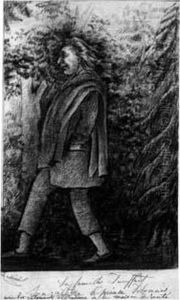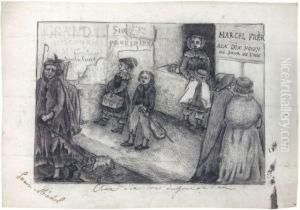Louise Michel Paintings
Louise Michel was a leading figure in the French anarchist movement, a passionate advocate for women's rights, and an influential participant in the Paris Commune of 1871. Born on May 29, 1830, in Vroncourt-la-Côte, Haute-Marne, France, she was raised in a politically liberal environment that profoundly influenced her beliefs and activism. Michel was well-educated, initially trained to be a teacher, and spent much of her early career in education, where she was known for her radical teaching methods and for instilling socialist ideals in her students.
Michel's political activism intensified with the onset of the Franco-Prussian War in 1870 and the subsequent siege of Paris. She became a central figure in the Paris Commune, the radical socialist and revolutionary government that briefly ruled Paris from March to May 1871. During the Commune, Michel was heavily involved in organizing and leading women's groups, ambulance services, and defending the city, earning her the nickname 'The Red Virgin of Montmartre'. After the fall of the Commune, she was arrested, tried, and deported to the penal colony of New Caledonia in the Pacific.
While in exile, Michel's political views shifted towards anarchism. She continued her activism, teaching the local population and advocating for the rights of the indigenous Kanak people. After being pardoned and allowed to return to France in 1880, Michel became an important figure in the anarchist movement, travelling across Europe to give lectures and support various causes, including workers' rights and education reform.
Louise Michel's contribution to political thought and her role in the anarchist movement were significant. She wrote extensively, including poems, novels, and political essays, contributing to the spread of anarchist ideas. Michel remained active in politics until her death in Paris on January 9, 1905. Her legacy as a symbol of rebellion, her dedication to social justice, and her role in one of the most tumultuous periods of French history have made her an iconic figure in the history of radical political thought.


